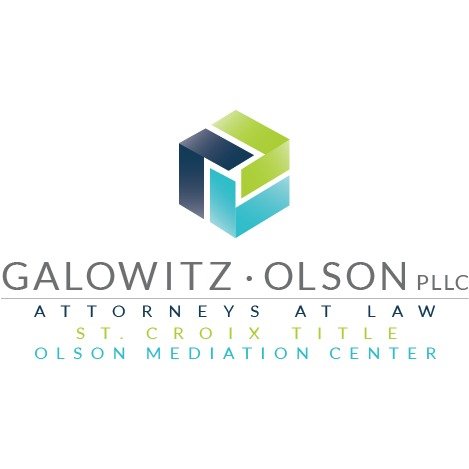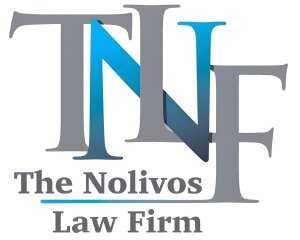Best Permanent Residency Lawyers in Minnesota
Share your needs with us, get contacted by law firms.
Free. Takes 2 min.
Or refine your search by selecting a city:
List of the best lawyers in Minnesota, United States
About Permanent Residency Law in Minnesota, United States
Permanent residency, often referred to as having a green card, allows non-citizens to live and work legally and permanently in the United States, including Minnesota. While permanent residency is governed by federal immigration laws overseen by United States Citizenship and Immigration Services (USCIS), living in Minnesota may involve additional considerations, such as state-specific benefits, documentation procedures, and interactions with local authorities. Obtaining permanent residency is a significant milestone for many immigrants, granting them greater security, employment opportunities, and a pathway to U.S. citizenship.
Why You May Need a Lawyer
Seeking legal assistance can be critical in various permanent residency scenarios. Here are some common situations where consulting an immigration lawyer in Minnesota is advisable:
- Your application for permanent residency has been denied or delayed.
- You have a complicated case involving prior immigration violations or criminal history.
- You are unsure about eligibility requirements based on family, employment, or humanitarian reasons.
- You need help understanding or preparing necessary documentation.
- You are facing possible removal or deportation proceedings.
- You want to avoid making mistakes that could jeopardize your status or future applications, including naturalization.
- You require assistance with renewing or replacing your green card.
- You are a victim of abuse or crime seeking permanent residency protection under special immigration categories.
Local Laws Overview
While federal law dictates the requirements and processes for permanent residency, certain aspects of the process in Minnesota can differ or have local implications:
- Access to State Services: Once you become a permanent resident, you may become eligible for some Minnesota state benefits, such as in-state tuition for public colleges or state health care programs, depending on your situation.
- Driver’s License and Identification: Green card holders can typically obtain a Minnesota driver’s license or state ID after establishing residency in the state. Local documentation and residency proof are required.
- Legal Assistance and Non-Profit Support: Minnesota has local organizations offering help with immigration matters, including legal clinics and interpretation services.
- Criminal Records: Past criminal convictions in Minnesota can impact eligibility for permanent residency or affect ongoing status, so seeking a lawyer familiar with both state and federal law is important.
- State Taxes: Permanent residents are subject to state tax laws in Minnesota. This may impact individuals with income or economic ties outside the state.
It is important to remember that, although permanent residency is determined by federal law, your interaction with Minnesota’s state agencies and institutions may impact your experience and access to services.
Frequently Asked Questions
What is a green card?
A green card is the common term for the identification card issued to lawful permanent residents of the United States, allowing them to live and work permanently in the country.
How can I apply for permanent residency in Minnesota?
Applications for permanent residency are filed with USCIS, regardless of your state of residence. However, you may need to attend biometrics appointments, interviews, or submit supporting documentation within Minnesota.
Can I live and work in any state with a green card?
Yes. As a permanent resident, you can live and work in any state, including Minnesota, without restriction.
How long does it take to get permanent residency?
Processing times vary based on your eligibility category, country of origin, and current USCIS workload. Some applicants may wait months, while others wait several years.
Does Minnesota offer any special assistance for green card applicants?
Minnesota has organizations that offer free or low-cost immigration legal services, but the state does not grant or approve green cards. Only federal agencies handle permanent residency applications.
What happens if my green card application is denied?
You may be able to file a motion to reopen or reconsider the case, or you might appeal the decision. Consulting a qualified attorney is recommended.
Can criminal charges in Minnesota affect my green card status?
Yes. Certain criminal offenses can jeopardize your eligibility or result in removal proceedings. It is crucial to seek both immigration and criminal defense advice if you are charged with a crime.
Am I eligible for state benefits in Minnesota as a green card holder?
Permanent residents may be eligible for some state benefits, but eligibility often depends on how long you have held your green card and other qualifications.
How do I replace a lost or stolen green card while in Minnesota?
You must file Form I-90 with USCIS to replace your green card. You can file online or by mail, and you may need to attend appointments in Minnesota as part of the process.
When can I apply for U.S. citizenship after receiving my green card?
Most permanent residents are eligible to apply for naturalization after five years, or after three years if married to a U.S. citizen, provided they meet all other requirements.
Additional Resources
If you need more information or assistance regarding permanent residency in Minnesota, consider reaching out to the following resources:
- United States Citizenship and Immigration Services (USCIS) customer service and online tools
- Immigrant Law Center of Minnesota - offers free or low-cost legal services and educational resources
- The Advocates for Human Rights - provides support on immigration issues
- The Minnesota State Bar Association - can help you locate licensed immigration attorneys in the state
- Numerous local community centers and non-profit organizations equipped to provide referrals and interpreting services
- Minnesota Department of Human Services - for questions about state benefits and eligibility for permanent residents
Next Steps
If you need legal help with obtaining or maintaining permanent residency in Minnesota, take the following steps:
- Gather all relevant documents, including identification, immigration paperwork, and any notices from authorities.
- Contact a qualified immigration attorney or a reputable legal aid organization familiar with federal and Minnesota state laws.
- Schedule a consultation to discuss your specific situation and get personalized advice.
- Follow through with your lawyer’s instructions and meet all deadlines for submitting paperwork or attending appointments.
- Keep copies of all documents, correspondence, and receipts related to your case for your records.
Remember, immigration law can be complex and mistakes or misunderstandings can lead to serious consequences. Professional guidance is often the best way to ensure a smooth and successful permanent residency process in Minnesota.
Lawzana helps you find the best lawyers and law firms in Minnesota through a curated and pre-screened list of qualified legal professionals. Our platform offers rankings and detailed profiles of attorneys and law firms, allowing you to compare based on practice areas, including Permanent Residency, experience, and client feedback.
Each profile includes a description of the firm's areas of practice, client reviews, team members and partners, year of establishment, spoken languages, office locations, contact information, social media presence, and any published articles or resources. Most firms on our platform speak English and are experienced in both local and international legal matters.
Get a quote from top-rated law firms in Minnesota, United States — quickly, securely, and without unnecessary hassle.
Disclaimer:
The information provided on this page is for general informational purposes only and does not constitute legal advice. While we strive to ensure the accuracy and relevance of the content, legal information may change over time, and interpretations of the law can vary. You should always consult with a qualified legal professional for advice specific to your situation.
We disclaim all liability for actions taken or not taken based on the content of this page. If you believe any information is incorrect or outdated, please contact us, and we will review and update it where appropriate.
Browse permanent residency law firms by city in Minnesota
Refine your search by selecting a city.










